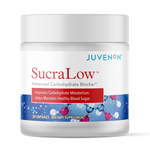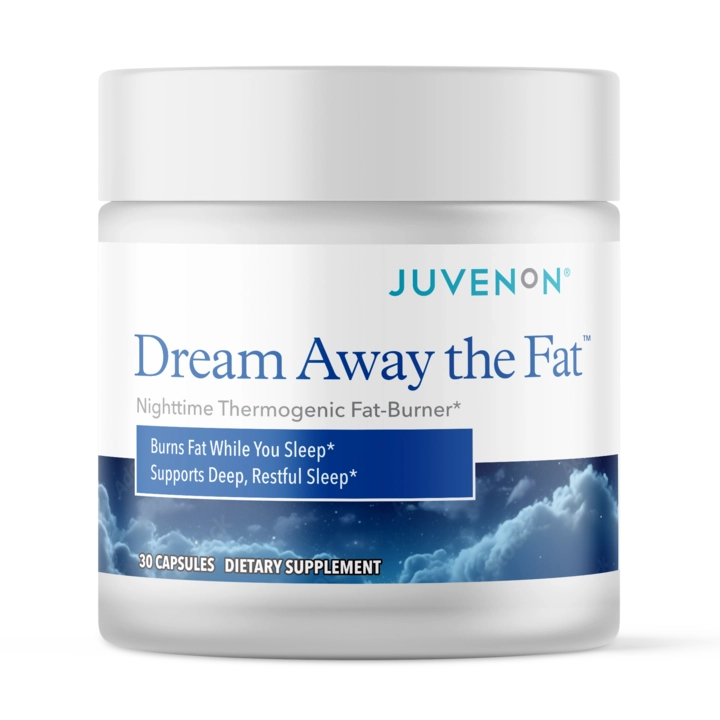
“What is a coenzyme?” is one of the essential questions to ask if you’re planning to take coenzyme Q10. To know the answer, read this post.
In this article:
Should I Take CoQ10?
Understanding Coenzyme Q10
CoQ10: Your Mitochondria’s Battery
Exposing the Supplementary Theory Flaw
Are You Wasting Your Money on CoQ10?
Bioavailability Limitations and Coenzyme Q10 Side Effects
Possible Benefits of Coenzyme Q10
How to Crack the Mitochondrial Barrier
A Quick Recap
What Is a Coenzyme And Other Important Facts about Coenzyme Q10
Should I Take CoQ10?
Here’s why it’s necessary to ask, “What is a coenzyme?” According to U.S. News and Report, coenzyme Q10 (or CoQ10 for short) is the third most popular supplement in the United States.
CoQ10 supplementation is prescribed by many doctors for treating or preventing a range of conditions from headache relief to Parkinson’s disease.
Today, CoQ10 is a $700 million global business. Over six million North Americans consume CoQ10 daily.
It is marketed not only as an antioxidant but also as an anti-aging compound, a therapy for heart health, and a prophylactic against the toxicity of statin drugs.
What are statin drugs? They are a class of medications that help lower triglycerides to reduce the risk of cardiovascular disease and hypertension.
Doctors are both recommending and prescribing CoQ10 for these and other conditions under the assumption that the supplement is beneficial to mitochondrial health.
But is this theory wrong? Given CoQ10’s popularity, one would assume there’s copious research to support these important health claims.
However, there is no real evidence that CoQ10 supplementation does what doctors think it does.
Understanding Coenzyme Q10

“What is coenzyme Q10?” Coenzyme Q10 is a critical biological compound, which plays a central role in cellular bioenergy generation and its regulation.
It can be found in most cells of the body with the highest concentrations found in the cells of your heart, kidneys, liver, and the most metabolically-active and mitochondrially-rich tissues.
CoQ10’s mystique as a nutritional supplement surely stems from its presumed association with the mitochondria. Its physiological mechanisms seem to include presumed antioxidant effects in addition to its well-characterized role as a cofactor in multiple metabolic energy pathways.
CoQ10 plays a central role in cellular bioenergy generation and its regulation. In our bodies, CoQ10 functions as an electrical component in our mitochondria.
If it sounds pretty important, that’s because it is.
CoQ10: Your Mitochondria’s Battery
Recall that protein complexes within our mitochondria biochemically convert nutritional fuels into electrical charges and, ultimately, adenosine triphosphate, the biological currency of energy.
These protein complexes, known as the electron transport chain (ETC), are always anchored within the mitochondrial membrane. It is the layered lipid sheets that form the overall structure of the mitochondria.
These lipid membranes form the physical features of cells and also serve to anchor proteins and protein complexes. In its native function, CoQ10 resides within the lipid membrane layer of the mitochondria and functions to move electrical charges between components of the ETC.
In this fashion, CoQ10 functionally resembles a very small battery. Or, perhaps more accurately, it’s like a capacitor, which means that it can temporarily hold electrical charges and also participate as an antioxidant.
As it turns out, the most important aspect of CoQ10 as a nutritional supplement isn’t its bioelectrical function but its molecular nature. CoQ10 is very lipophilic or “oil like.”
Lipophilic molecules dissolve in oil while hydrophilic molecules dissolve in water. Very few molecules do both.
Exposing the Supplementation Theory Flaw
A significant point in answering “What is a coenzyme?” is to know its benefits and disadvantages, especially the supposed coenzyme Q10 benefits.
CoQ10 is a cofactor, which means that it is a required factor for proper enzymatic activity. However, CoQ10 is not a required nutrient and thus not actually a vitamin.
In fact, the body synthesizes and recycles natural CoQ10 rather efficiently.
One interesting twist of biochemistry is that the natural CoQ10 in your body is made by the same metabolic machinery that also synthesizes cholesterol. Indeed chronic use of statin drugs seems to lower natural CoQ10 levels.
So there is some rationale behind its co-administration with statins. But does dietary supplementation of such a specific biochemical really help out the native metabolic pathways in which it typically functions?
Since CoQ10 is synthesized in every cell, in close locational relation to the actual mitochondrial machinery that utilize it, is there any reason at all to think that the CoQ10 you take is absorbed by the gut and finds its way to your mitochondria?
Indeed, a recent meta-analysis of a large array of CoQ10 clinical trials determined there were no improvements in cardiac function, repair, or mortality. The study pointed out that the only common “improvement” was increased serum CoQ10 levels.
Are You Wasting Your Money on CoQ10?

CoQ10 is sold as a nutritional supplement and is intended to provide the mitochondria with more antioxidants and electron shuttling power.
Anecdotally, the supplement has been associated with improvements in free radical scavenging, cardiovascular function, diabetes, hypertension, and much more. Of course, a lot of supplements are marketed with such claims.
The problem lies in bioavailability and takes us back to the oil-and-water concept. Most CoQ10 supplements show bioavailability of less than 15%.
Eighty-five percent or more of the supplement just passes through the gut unabsorbed. Even with such low bioavailability, oral supplementation with CoQ10 is known to increase blood and lipoprotein concentrations of CoQ10 in humans.
Bioavailability Limitations and Coenzyme Q10 Side Effects
Of course, it has to be absorbed and transported within the bloodstream via lipoproteins—microscopic oil vesicles—since it does not dissolve in water.
However, to date, there is no evidence that orally supplemented CoQ10 ever makes it into other tissues beyond the bloodstream, let alone the mitochondria.
In addition to bioavailability being limited by its lipophilic nature, CoQ10 is also a relatively large and cumbersome molecule, which physiologically isn’t typically transported around the body.
So while CoQ10 is certainly a mitochondrial cofactor physiologically, nothing in the research suggests that it is a mitochondrial nutrient when taken as a supplement.
Possible Benefits of Coenzyme Q10
Indeed, much of the supposed healthy effects noted in clinical testing of CoQ10 seem likely due to its antioxidant function in the bloodstream.
Much like vitamin E, CoQ10 may contribute to cardiovascular health simply by preventing some of the associated oxidative spoilage of lipoprotein vesicles↘—a completely passive side effect.
CoQ10 is safe and relatively inexpensive. Despite the dearth of scientific evidence questioning its efficacy and marketing claims, many people do report improved well-being. CoQ10 is definitely safe enough for that task, but if you’re taking it for your mitochondria’s sake, you might think again.
How to Crack the Mitochondrial Barrier

If you are interested in your mitochondrial health on a molecular level, some supplements verifiably do become transported to the mitochondria.
A vast body of research literature demonstrates that dietary lipoic acid and carnitine are rapidly absorbed and transported to tissues including passing the blood-brain-barrier. In tissues, these nutrients are readily taken into mitochondria and demonstrate improved mitochondrial function and positively associated clinical outcomes.
These supplements include Juvenon Cellular Health Tablets. Which contains the following:
- Acetyl L-carnitine
- Alpha lipoic acids
Acetyl L-carnitine (or ALCAR) is an essential nutrient as it helps transport fatty acids to the mitochondria, which will then use it as fuel.
That’s not the only benefit, though. It may also be helpful in improving brain function.
In a double-blind study, it may delay the deterioration of the cognitive processes or abilities of people with Alzheimer’s disease. In another study, the consumption of L-carnitine resulted in lower blood pressure and better glucose response.
Alpha lipoic acids, meanwhile, are one of the mitochondrial nutrients. This is because they have a direct and indirect positive effect to the functions of the mitochondria:
- Scavenge free radicals
- Boost cofactors such as coenzyme Q10
- Protect enzymes from oxidation
- Prevent the production of oxidants
- Inhibit the reactivity of oxidants
- Stimulate enzyme activity
- Decrease age-related oxidative damage
A Quick Recap
What is a coenzyme? Also known as a cofactor, it is a non-protein compound necessary for the activities of enzymes.
It may work as a catalyst, which boosts chemical reaction. One of these is coenzyme Q10.
What is q10 coenzyme? It is a naturally occurring antioxidant the body produces and stores in the cell’s powerhouse called mitochondria.
Mitochondria are responsible for creating energy, which the rest of the cell needs to do its other functions. The role of Q10 is to help generate this energy.
Some people, however, value it for being an antioxidant. It’s not unusual for a coenzyme Q10 supplement to promote its supposed ability to reduce the risk of heart disease.
Making it even more popular is the fact its production can decline as a person ages. This provides more reasons to either increase the coenzyme Q10 dosage or take the best form of CoQ10.
These supplements may not be the best choice for anyone who wants to be healthy. There are issues about bioavailability and contraindications especially among those taking statins.
Worse, the supplement version of this coenzyme may not even break into mitochondria, where they can be the most helpful. Instead, they only raise blood levels of Q10.
For vitality, it may be necessary to go beyond “What is a coenzyme?” and focus on the substances that have a much better chance of breaking the mitochondria barrier.
References:
Ernster L, Dallner G. Biochemical, physiological and medical aspects of ubiquinone function. Biochim Biophys Acta. 1995; 1271(1):195-204.
Crane FL. Biochemical functions of coenzyme Q10. J Am Coll Nutr. 2001; 20(6):591-598.Langsjoen PH, Langsjoen AM. The clinical use of HMG CoA-reductase inhibitors and the associated depletion of coenzyme Q10. A review of animal and human publications. Biofactors. 2003;18:101-1Zhang Y, Aberg F, Appelkvist EL, Dallner G, Ernster L. Uptake of dietary coenzyme Q supplement is limited in rats. J Nutr. 1995;125(3):446-453.Svensson M, Malm C, Tonkonogi M, Ekblom B, Sjodin B, Sahlin K. Effect of Q10 supplementation on tissue Q10 levels and adenine nucleotide catabolism during high-intensity exercise. Int J Sport Nutr. 1999; 9(2):166-180.Bhagavan HN, Chopra RK. Coenzyme Q10: Absorption, tissue uptake, metabolism and pharmacokinetics. Free Radical Research. 2006; 40 (5): 445–53.
Liu J. Alpha-lipoic acid: a potent mitochondrial nutrient for improving memory deficit, oxidative stress and mitochondrial dysfunction. in: Patel MS and Packer L. Lipoic acid: energy production antioxidant activity and health effects. CRC Press, Boca Raton, 2008; 475-93
Inano A, Sai Y, Nikaido H, Hashimoto N, Asano M, Tsuji A, Tamai I.
Acetyl-L-carnitine permeability across the blood-brain barrier and involvement of carnitine transporter OCTN2. Biopharm Drug Dispos. 2003 Nov; 24(8):357-65
Madmani, ME, et al. “Coenzyme Q10 for heart failure.”The Cochrane database of systematic reviews 9: CD008684
Editor’s Note: This post was originally published on August 1, 2019, and has been updated for quality and relevancy.






















